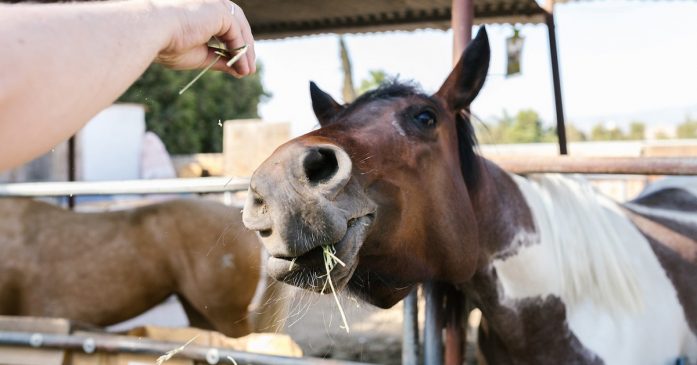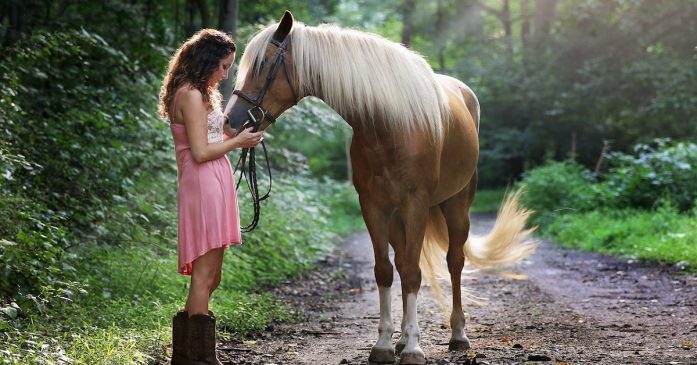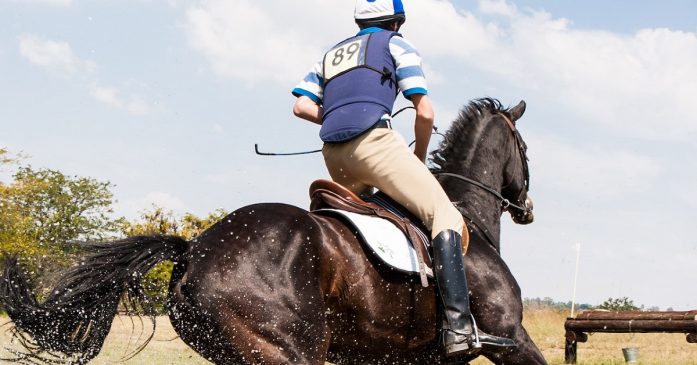Vetpharmacy.co.uk Cookie Policy : We use cookies to enhance your user experience. To find out more please view our cookie policy
Horse Food & Nutrition: A Guide to Better Horse Nutrition & Diet

For horses to maintain good health, performance, and well-being, proper nutrition is crucial. Horses require a unique diet that needs to be carefully considered ensuring they receive the necessary nutrients, vitamins, and minerals required for their bodily functions. Providing horses with a well-balanced diet is essential to support their bodily functions and maintain optimal well-being. Keep reading to learn more about horse food and how you can get it online at Vet Pharmacy.
Why is nutrition important for horses?
Horses need six different types of nutrients: water, fats, carbohydrates, protein, vitamins, and minerals. Just like humans do.
Here are some reasons why proper nutrition is crucial for horses:
1. Muscle maintenance
For horses to develop and keep their muscle mass, they need protein. Protein is essential for muscle growth, repair, and post-exercise recovery.
2. Digestive health
Horses' unique digestive system necessitates a high-fibre diet. A balanced diet that includes sufficient amounts of forages, like hay or grass, promotes optimum nutrient absorption and aids in maintaining good gut health.
3. Energy production
Horses require energy for various functions, including movement, digestion, and regulation of body temperature.
4. Reproduction
For horses to remain in good reproductive health, proper nutrition is crucial. This is because, a healthy foetus needs adequate amounts of nutrients including calcium, phosphorus, and magnesium to develop and flourish.
5. Immune function
For their immune systems to function properly, horses need vitamins and minerals. These include vitamins A, E, and C as well as minerals like zinc, selenium, and copper. Some of our best foods that contain vitamins as well as minerals include Convital R, Equistro Secreta Pro Max and Collovet Liquid.

When it comes to feeding horses, what are the key factors that should be taken into consideration?
To ensure that horses are fed the right diet for their needs, a few factors must be taken into account.
These factors include:
Activity level
Horses that perform high levels of physical activity, for example, racehorses or show jumpers, require a diet higher in energy.
Age
Horses of different ages have different nutritional requirements.
Body condition
Underweight horses might need a diet that is high in energy. On the other hand, overweight horses might need a diet that is lower in calories.
Feed quality
The hay or pasture that horses eat should be of high quality. Also, the grain they eat should be free of pollutants like mould.
Health
A special diet may be necessary for horses with health problems. This is because the diet helps to manage their condition.
Feeding routine
Regular feeding schedules help prevent stomach problems.
Environment
Horses living in different environments may require different diets.
Types of horse feed
Horse feed can be classified into different varieties based on their composition, function, and form. n terms of nutrition, the following are some common types of horse feed:
Type of Hay
Hay is a type of roughage made out of dried grass, legumes, or other plants. It is the most popular kind of horse feed and gives horses fibre, energy, as well as certain nutrients.
Pastures
Pastures are a natural supply of fodder that horses can graze on. It’s important to note that the quantity and quality of nutrients in the pasture can vary depending on factors such as the time of year, climate, and soil conditions.
Concentrates
Comparing livestock feed options, concentrates are often favoured over hay or pasture due to their high energy content and nutrient density. Concentrates offer a variety of benefits that make them a popular choice among farmers and livestock owners. They come in two groups, which include grains and pellets.
Supplements
Supplements are extra sources of the vitamins, minerals, or other nutrients that horses may require to stay healthy.
Treats
You can give your horse treats as a reward or to supplement their diet. But, they must be used sparingly and shouldn't take the place of the horse's regular diet.
Tips for Feeding Horses
Here are some tips for feeding horses.
- Provide clean water at all times
- Feed a balanced diet
- Feed small portions and often
- Monitor feed intake
- Observe your horse's body condition
- Consult with a veterinarian

Where can I get quality horse food?
Shop online at Vet Pharmacy today to get quality horse food, including supplements and foods for digestion.
Shop Now
This blog post was written on behalf of Vet Pharmacy by Pharmacy Mentor